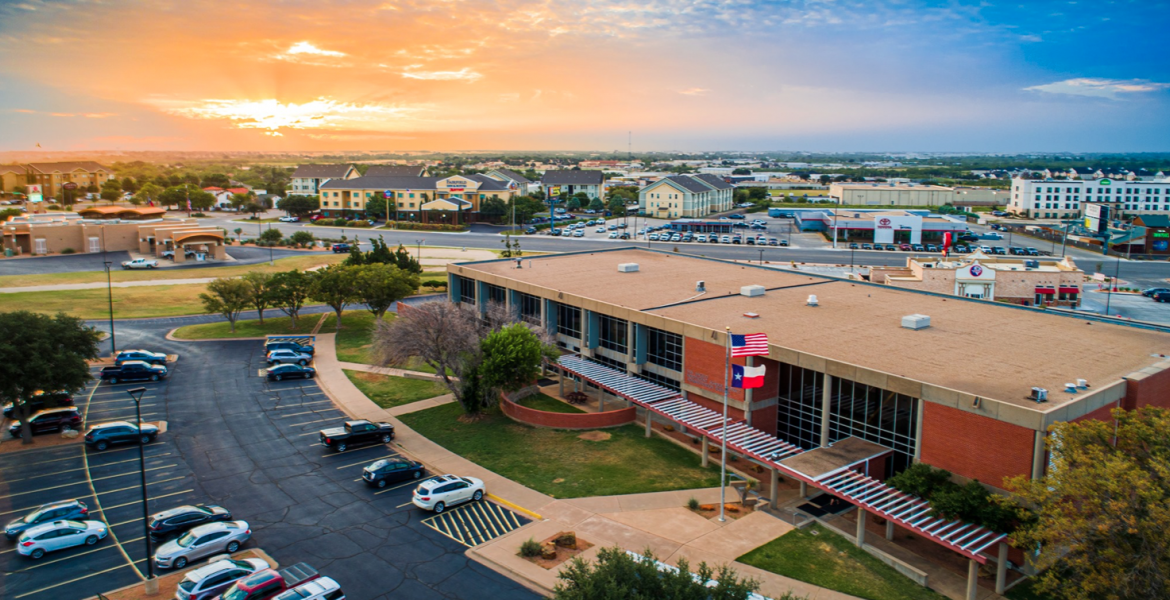SAN ANGELO, TX – After enjoying a three-day weekend, City of San Angelo leaders got things started bright and early Tuesday morning at the first City Council meeting of September. Among the issues tackled were payday loans, or predatory lending.
Councilman Bill Richardson, SMD 1, who requested the discussion of payday loans be brought to the council for a possible ordinance, said he has learned there are several cities throughout Texas that have ordinances governing title, short-term and payday loans.
“These loans are predatory loans,” he said.
He added that the interest rate on these loans is up to 500 percent, and the City has an obligation to protect the citizens against this type of predatory lending.
City Attorney Theresa James said the issue of these types of loans have been brought forth to the Texas Legislature several times, but no action has been taken.
She said the Texas Municipal League is advising cities wanting to take action on these loans to function under a model ordinance. However, the model ordinance doesn’t address the interest rate. Instead, it requires registration on the maintenance of records. It also limits cash advances to not exceed more than 20 percent of a consumer’s gross monthly income.
Additionally, an extension of a motor vehicle loan cannot exceed 70 percent of the total retail value of the vehicle, and consumer protection is required in the ordinance. There are also zoning ordinances that regulate where these establishments can operate.
“There were 35 cities as of April 2016 that have passed ordinances,” said James. “Of those, five have passed both an ordinance regulating the industry as well as land use.”
Fifteen cities have also addressed the issue through land use regulation.
James emphasized that the TML does not want cities to deviate from the suggested model too drastically so there is consistency. The TML model is based on six cities that passed ordinances, including San Antonio, Dallas, Denton and Houston, said James.
She added that there is some regulation on the federal level. The Consumer Finance Protection Bureau is considering regulations that require these industries to verify the ability of borrowers to pay these loans back and limiting repeat borrowing; to suggest other loans less predatory in nature; and that require written notice before debiting accounts.
“This is one of those areas of the law that TML forewarns us that, if we pass an ordinance, there is more of a likelihood that we would be sued by the industry,” James said. “There’s always that risk whenever we pass any kind of regulation, but that risk seems to heighten with this type of regulation.”
Also, the Court of Appeals notes that this type of an ordinance is a criminal one, so it should be addressed through the criminal court.
Councilwoman Charlotte Farmer, SMD 6, said she can see both sides of the issue being a previous lender.
“But this, to me, is something the Texas Legislature needs to address, not each city. I don't think we’ve got any business messing with this whatsoever,” Farmer said.
She added that there are businesses here in San Angelo that employ people and questioned what will happen to them with the passing of an ordinance. Also, there are people who want cash for whatever purpose, and they have no problem getting two or three liens on their vehicles. They have to be responsible for themselves.
Farmer said she understands the need for the ordinance, but doesn’t think it should be up to the city to regulate.
Richardson said in response that democracy has to be stirred at the county level because the City can’t depend on the state and national government any longer. The goal is to protect the citizens.
Marty Self, SMD 2, said the City needs to move forward with this and deal with predatory lending at a local level.
“If we get sued, we get sued,” he noted.
Harry Thomas, SMD 3, said laws have failed to pass the Legislature two or three times. He agrees with Richardson and said the council needs to move forward and make this happen.
“We can’t wait for the State to bring this up,” he said. “I think we need to move forward on it.”
Councilman Lane Carter, SMD 5, said there is regulation in place, and he doesn’t think this is a city issue. Also, a lot of people are not able to get any other kind of loans, so the city would be overstepping boundaries with an ordinance.
Mayor Dwain Morrison said he has a problem with the state on this issue.
“We have state usury laws that set a ceiling on what percentages can be charged,” he said.
If people have found loopholes, then the State of Texas has “let us down on this,” he said. “That’s something the state will have to address.”
Mark Bethune, executive director of The Concho Valley Community Action Agency, said during public comment that his agency’s mission is to combat poverty through partnerships.
“We are the administrators of the federal dollars going to assistance in our community,” he explained.
Bethune said he was concerned how these loans impact clients, and put together a survey that asked three questions:
1. Do you currently have payday or title loans?
2. Have you ever had payday or title loans?
3. If so, how long did it take to pay off?
In less than one month, Behtune received 76 responses, and 35 of these families confirmed they had these types of loans.
Bishop Michael Sis also came forward to discuss the concerns the Catholic Church has about the effects payday and title loans have on these struggling families.
He said he is a member of an ad-hoc group that has a sample ordinance to put limitations on payday lenders. The research is based on that of the Baptist Church, Catholic Church and other churches and organizations.
“We have hard copies of the sample ordinance we’re recommending that you pass,” Sis told the council.
Sis said the group of churches and organizations feel they have to speak out on behalf of the families who have become victims to predatory lending.
When churches offer many families assistance, it’s to keep up with the interest and fees on payday loans, he said.
“We find that annual rates of 300 percent to 500 percent are very common,” said Sis. “These are a drain financially on vulnerable families, and they’re also a drain on the local economy.”
He added that every dollar in fees paid to payday loan businesses leads to a 24 percent net economic drain to the city.
“San Angelo saw a net economic drain of $3.8 million from 2014 to 2017,” said Sis.
Payday lenders say they have to charge these high interest rates because of the consumers’ credit, but the rates being charged go far beyond what’s right, Sis continued.
“It’s time for our communities to provide better borrowing alternatives for the structure of their success while still providing sufficient security for the lender,” added Sis.
Sis also said the church supports a free market, but members don't support business that leads to excessive profit, and taking unfair advantage of people who are poor and desperate.
“Payday lenders capitalize on desperation for their own excessive profit at the expense of poor families,” he said.
The ad-hoc group offered three elements to a solution on payday lending:
- Consumer education: city schools, churches, and families need to instill values that teach people how to manage their money responsibly.
- Alternative lending sources—credit unions, savings and loans, community assistant programs to provide alternatives.
- Laws that make lending practices more fair at federal, local, state, and the city level.
Sis said members of the ad-hoc group are willing to speak with the City Council individually about their suggestions.
After hearing public comment, Farmer asked if the City has done a study on the impact an ordinance would have on the 13 payday lending and title loan businesses in San Angelo.
Daniel Valenzuela said the City can do that research and bring that back to the council.
“If that research could be done, I would feel better about moving forward,” Farmer said.
Richardson said, however, “I think we should consider what our citizens are saying to us. We’re here to represent them.”
Mayor Morrison said he would like something in writing that the council can dissect and make a decision on. The state hasn’t done anything, and he would like more discussion on this to help the citizens.
All agreed to look at ordinance language, and then make a determination as a council if this is another restriction they would like to add on businesses.
Subscribe to the LIVE! Daily
Required






Post a comment to this article here: